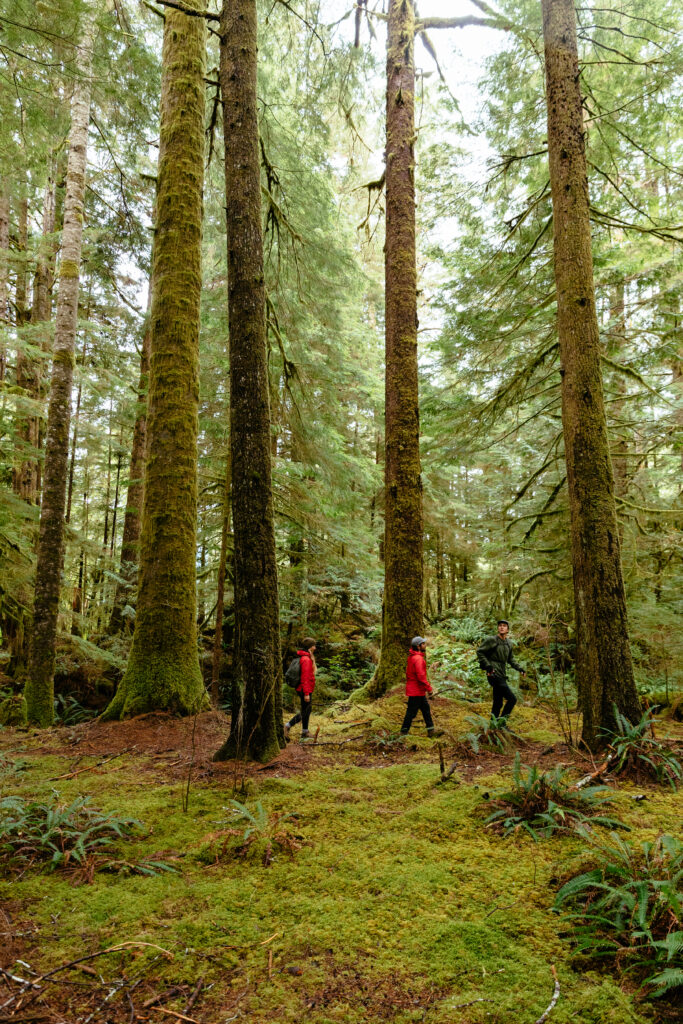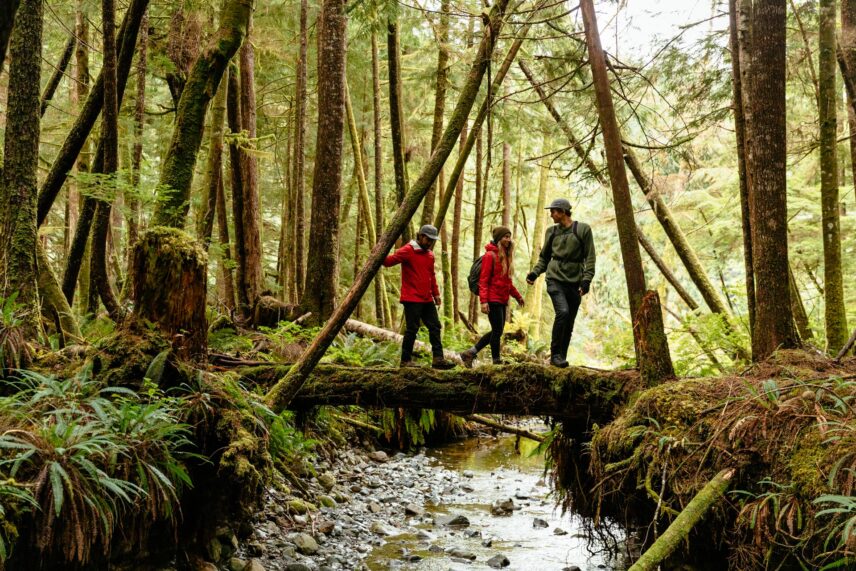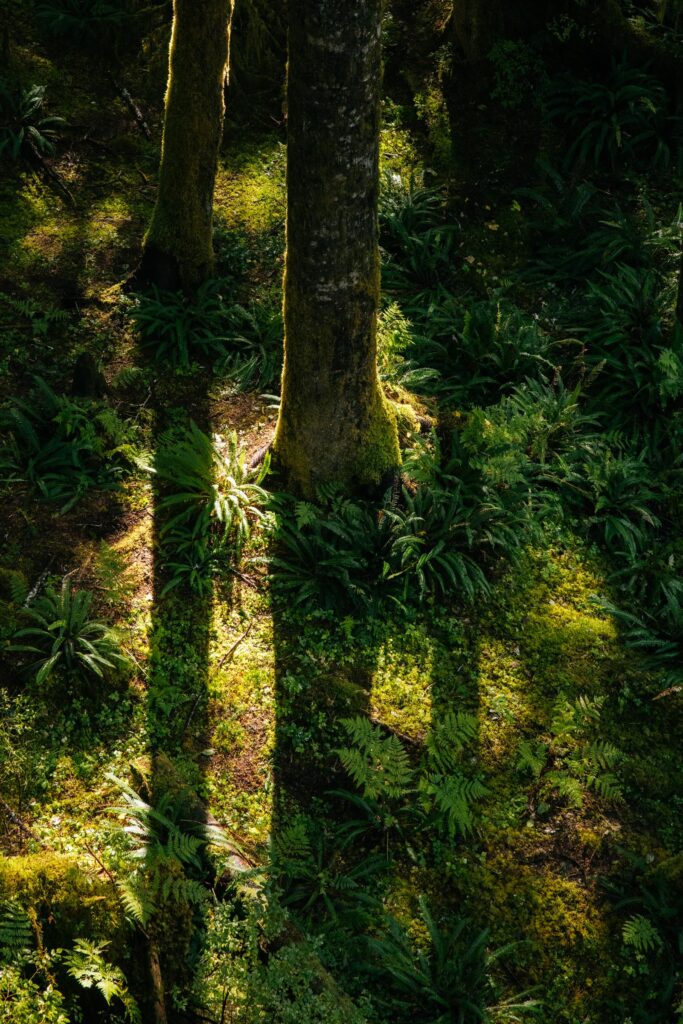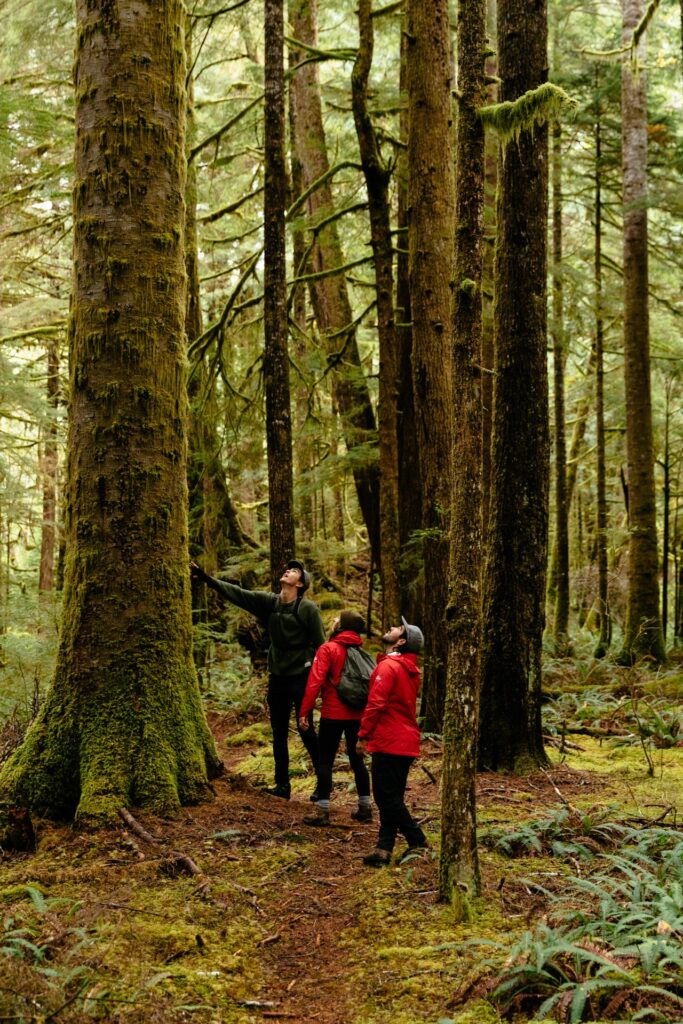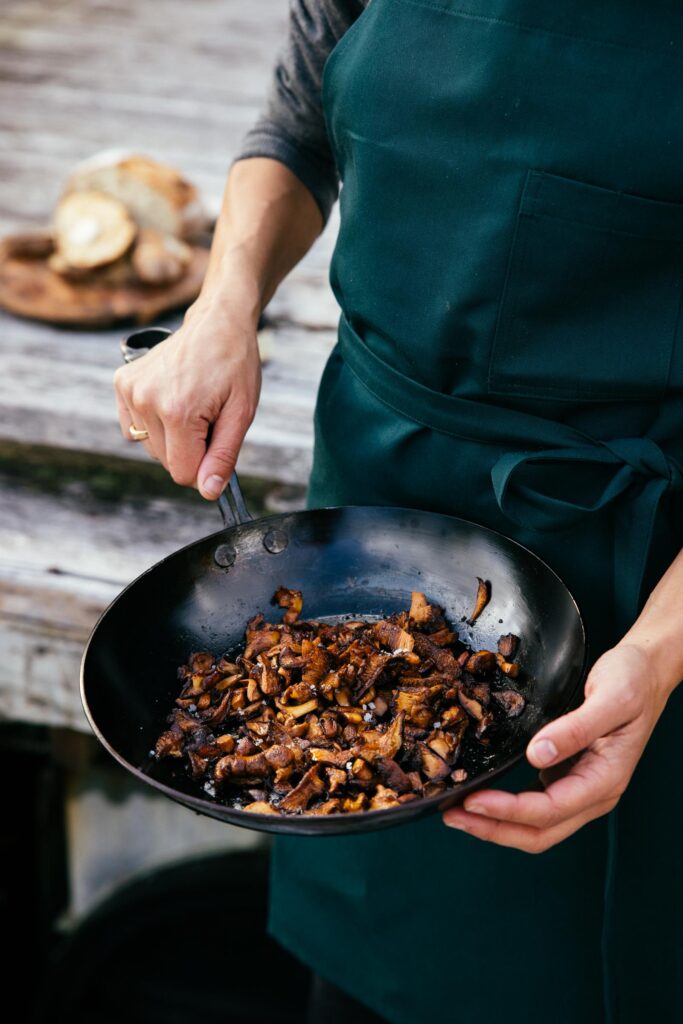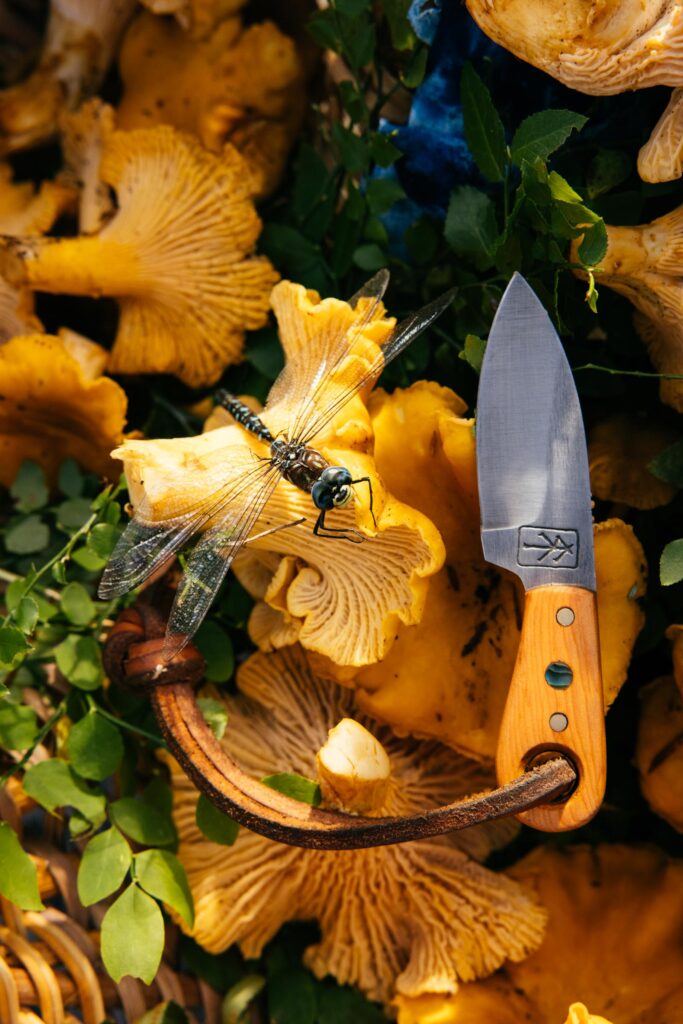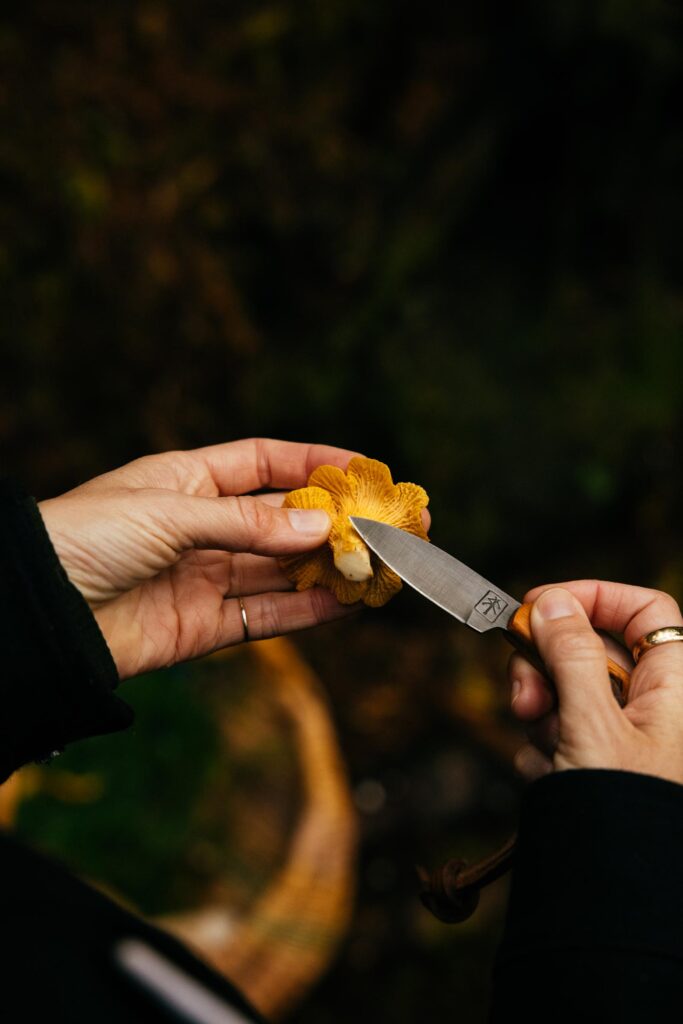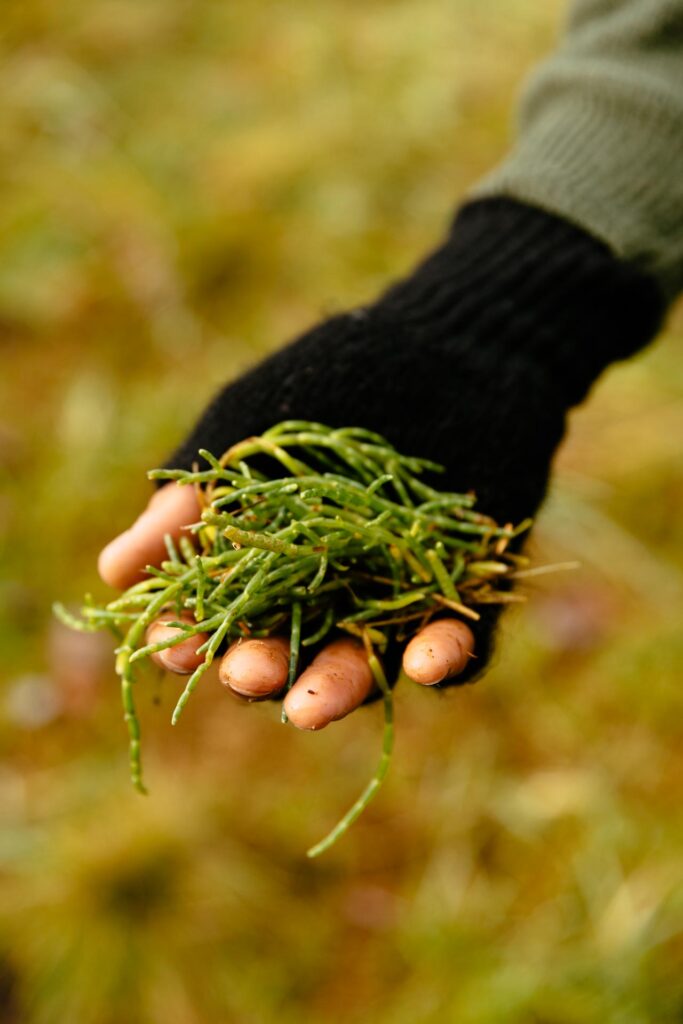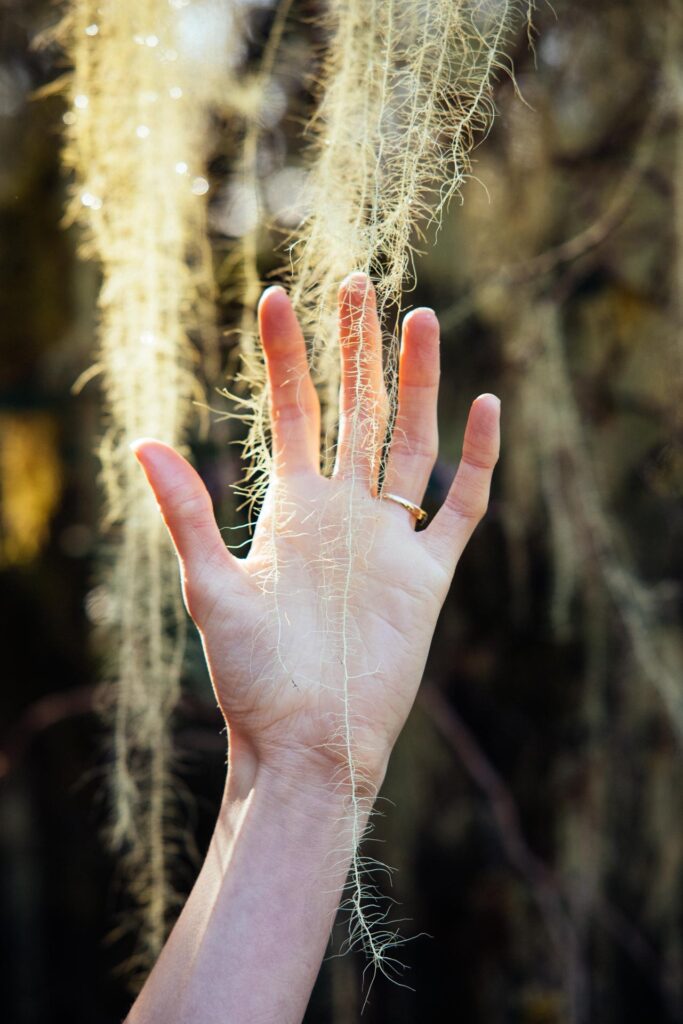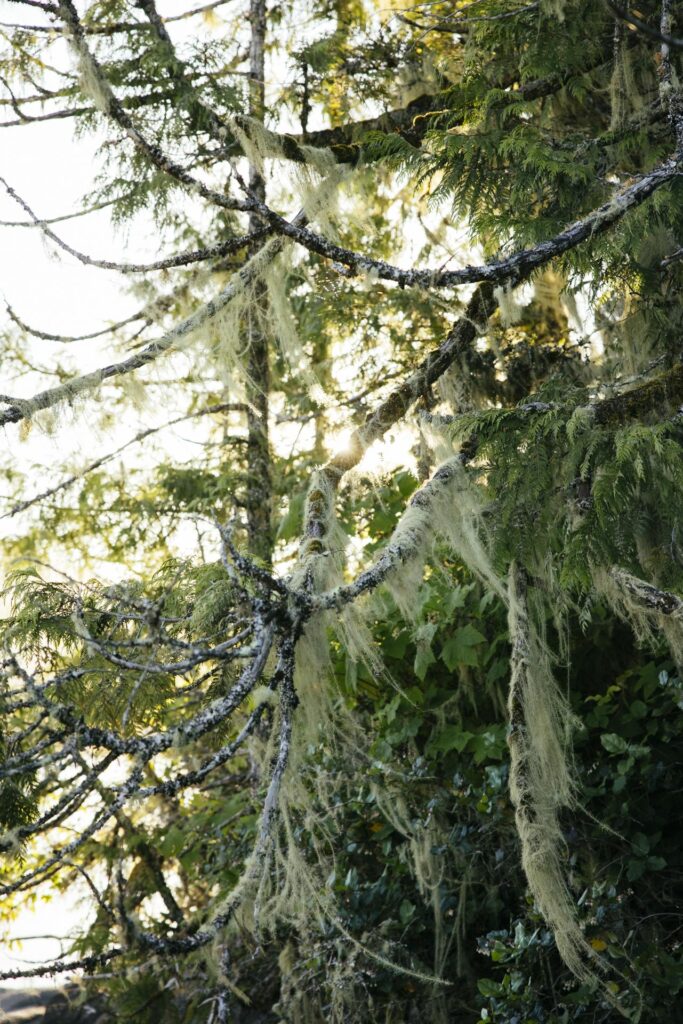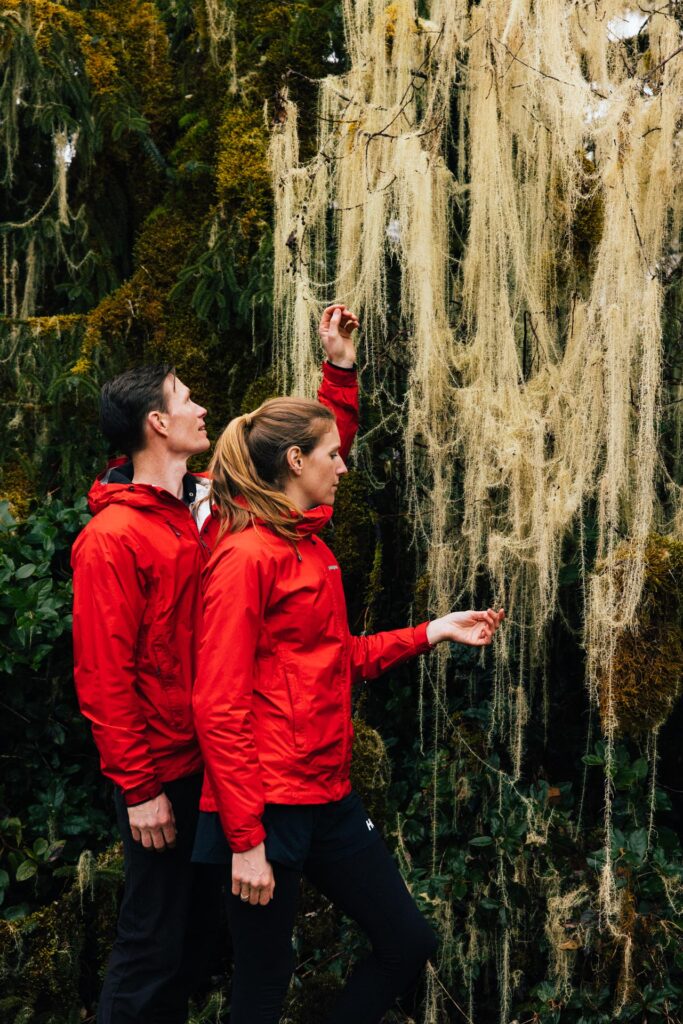these 5 plants are yours to discover
The rainforest thriving in the northwest abounds with fantastic flora thanks to the fertile ground and temperate climate. Countless multipurpose plants grow here that we can use for their medicinal properties or add some flavour to our West Coast cuisine. Or, simply gaze at their organic beauty to restore your sense of wellness within. If contemplation is up your alley, try guided forest bathing as part of our Rhythms of Nature wellness retreat in May, 2022.
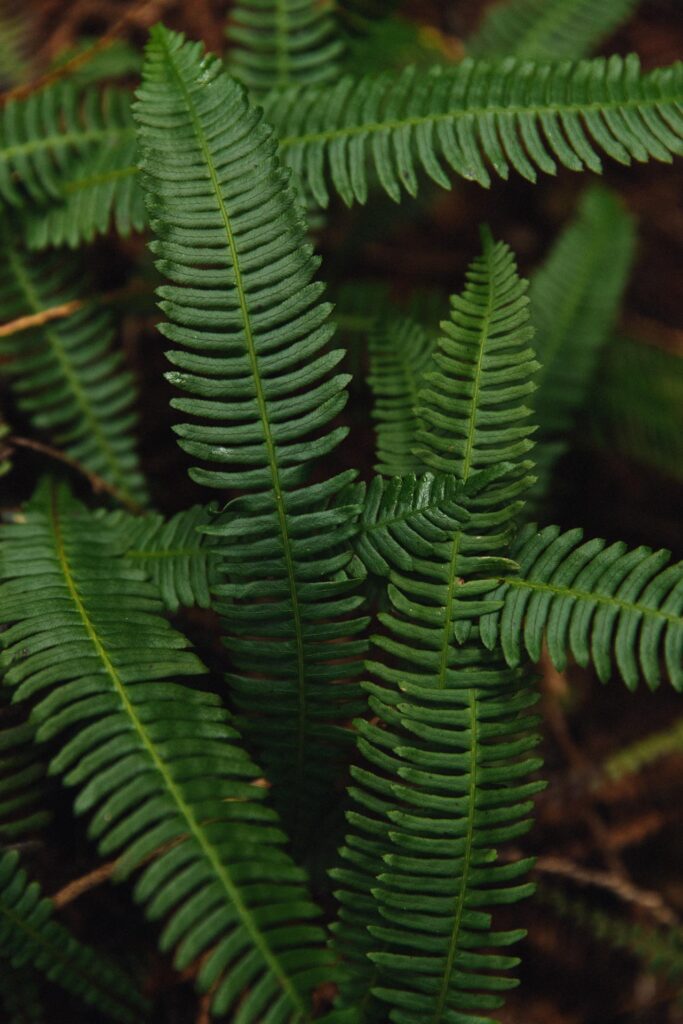
Spruce Trees
Spruce trees are one of the many various evergreens that comprise the fecund Great Bear Rainforest surrounding Nimmo Bay. These coniferous trees grow to great heights, with most of the 35 species reaching heights up to 60 metres (200 feet). The tallest of the group remains the Sitka Spruce, which you will see towering at 100 metres (330 feet) around our wilderness resort.
The spruce tree is particularly fascinating for its many medicinal properties derived from the resin (a thicker, stickier sap). The resin can aid in healing wounds by putting it on cuts or scratches and covering it with a bandage. It should keep the wound free of dirt, preventing infection. As for the needles, they can be boiled for 5–10 minutes and consumed two to three times daily to help alleviate cold symptoms.
Licorice fern
In the Canadian Rainforest in the Pacific Northwest, where moss covers much of the land, you’ll find several licorice ferns growing from the ground or Big Leaf Maples. The small green fronds appear triangular, with the underside of the frond spotted with the circular spore cases.
Where this ubiquitous fern gets its name comes from the roots (rhizomes), which have a mild sweet licorice flavour. Licorice fern’s rhizomes can be chewed or brewed into a tea to treat sore throats, cold symptoms, or digestive issues.
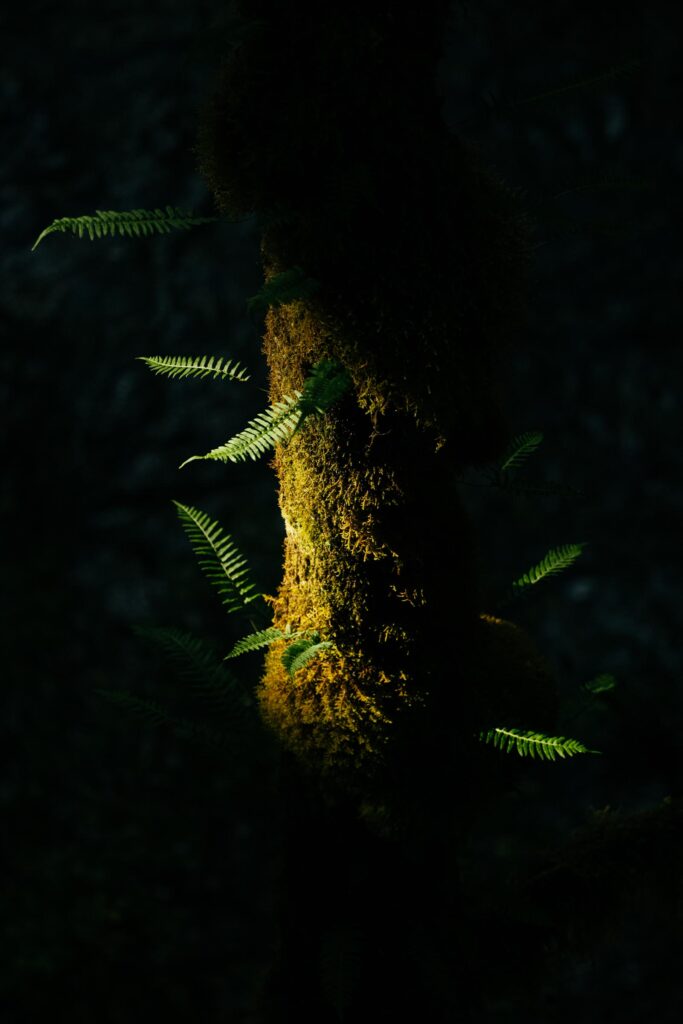
Chanterelle Mushrooms
Chanterelle mushrooms add a local (and delicious) element to our West Coast-inspired dishes—they have a delectable nutty taste and texture sure to please any mushroom lover.
Because they’re so difficult to grow commercially, you may see them in the produce section with a hefty price tag. But fortunately, chanterelle mushrooms are some of the local delights that we can harvest and cook for you during your stay. They’re a nutritious addition to any dish being rich in iron and vitamins B3, B5, C, and D.
With their wrinkly gills, trumpet shape, bright golden-yellow colour, and wavy cap, they’re easily identifiable if you are lucky enough to find them while foraging through the Great Bear Rainforest. You’ll most likely locate a patch of these golden wonders in dense, mossy areas or near the edges of salal bushes. But, it’s best to have an expert forager with you as some “false” chanterelles exist along with other poisonous mushrooms you shouldn’t consume.
Sea Asparagus
Many of our chef-prepared meals use locally sourced ingredients, including those from the coastal marshes along the shore. Sea asparagus, which has a vivid green hue, can substitute vegetables and add a complementary flavour to any seafood dish or fresh salad.
Isn’t it neat to know that we can derive vitamins and nutrients near our doorstep? Sea asparagus is packed with nutrients, making it an excellent source of calcium, iron, and vitamins A, B, and C.
Lichen
Ready to have your mind blown? Let’s talk about lichens. While they appear to be moss-like plants, lichens are classified as fungi. They comprise at least two organisms, a fungus and algae or bacteria, that function together as one. Simply put, the algae live inside the fungus, exchanging nutrients through photosynthesis.
Lichens have existed on the planet for millions of years, and today’s species count clocks at around 3,600. They’re ever-evolving, and new discoveries are being made each year.
Immerse in Nature
If any of these natural wonders have piqued your interest, we encourage you to dive into a Nimmo Bay Experience in our natural paradise. Unplug from your to-do list and immerse in the heart of the Great Bear Rainforest. Wilderness awaits.
